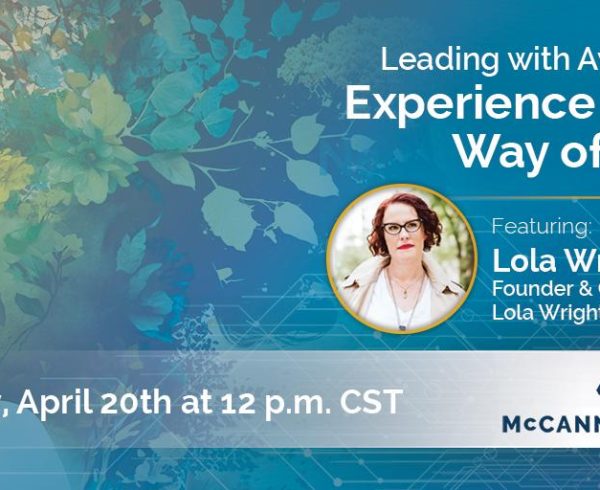Have you ever asked yourself if you should have and/or be a mentor? Or maybe you’ve wondered what a mentor is and what the benefits are.
Merriam-Webster defines a mentor as a trusted counselor or guide. Given that broad definition, many of us are mentors and don’t even realize it.
That’s because many of us assume mentorship requires a formal acknowledgment from both parties. We think it has to fit a certain structure: an adult individual mentoring youth or an experienced colleague mentoring a younger one. Those are all misconceptions.
A commitment to mentorship
Throughout my life, whether in school or in the workplace, I have found myself being a part of mentorship programs. I have always enjoyed being a positive figure in someone’s life, sharing insights, providing resources, and offering value to others.
Through McCann Partners, I have had the chance to connect with high school students at Chicago Tech Academy as a mentor and now participate through iMentor. I have provided advice, been a shoulder to cry on, and assisted with post-secondary education plans—the list could go on. But I think it’s important for me to have mentors too.
In the beginning stages, it can be a challenge for both parties to warm up to one another. A Harvard Business Review article titled What the Best Mentors Do talks about what great mentorship looks like. The author says, “The best leaders practice a form of leadership that is less about creating followers and more about creating other leaders.” Mentors should build meaningful relationships with their mentees that aren’t based on what the mentor wants, but on helping the mentee achieve what they want.
Mentorship in action
One young woman I mentor is in high school, and we’ve been in a mentoring relationship for just about two years. Over time, we’ve grown closer, and she’s opened up more. We talk about schools, friendships, book recommendations, career opportunities, and life lessons. I help her stretch outside her comfort zone and expose her to things she wouldn’t explore on her own.
It can sometimes be difficult to know if she’s applying what she’s learned, but a recent conversation revealed one way mentorship has impacted her. While testing for a college credit class, my mentee said she thought about me. Not because I gave her test-taking tips or helped her study, but because I was a positive example of where that college credit could take her in the long run. Without even thinking about it, I was modeling the connection between college, career, and success. She could see that her hard work on that test could help her get into college, secure a good job, and create a life for herself. A life where she said one day she would take me to lunch to thank me for supporting her.
Mentorship isn’t just about the practical advice you give or the connections you help someone make. You can make an impact just by being there and taking an interest. To my mentee, I’m like a big sister, and that means a lot.
Mentorship truly changes lives
What I have learned is that whether in recruiting, mentorship, or any other life endeavor, building relationships is the most important thing because you never know where that can take you. You never know what a mentor/mentee relationship may bring in the long run.
Just as mentees gain guidance and direction from their mentors, mentors can learn from their mentees. Mentees can introduce you to different perspectives and teach you new things. Their success can feel like your success, and watching them grow is incredibly rewarding.
With a clearer understanding of mentorship, maybe it’s something you’d like to explore. I couldn’t recommend it more! Whether you desire to be a mentor or to be mentored, you’ll learn new things and potentially build a life-long relationship.
What are your thoughts on mentoring?








